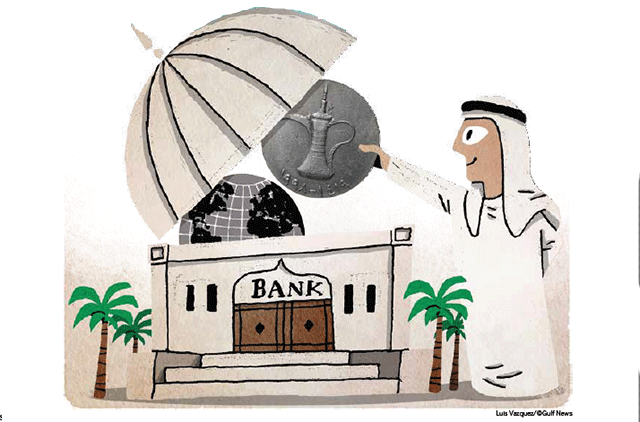
The emerging strength of the global Islamic economy was on show this week in Dubai when the World Islamic Economic Forum (WIEF) held its 10th annual meeting, and it was interesting how many speakers came from the non-Muslim world to emphasise how they were working to incorporate Islamic ideas into the existing international financial and legal structures.
It was clear that the hundreds of dedicated experts in Islamic business and finance, and non-Muslims from other jurisdictions, were both eager to discuss how to join the two visions of how business and finance work, and focus on their operational compatibilities rather than their differences.
Islamic finance has been seen in the past as a fringe interest for a few particularly devout Muslims, but now the movement has moved into the mainstream of global business that no world business hub can ignore. Essa Kazim, Governor of the Dubai International Financial Centre (DIFC), summed up the new mood when he pointed out that the global Islamic economy will double to be worth $3.4 trillion (Dh12.48 trillion) in the next four years, and that the sukuk (Islamic bond) market is growing by more than 10 per cent a year.
Acceptance
The wider acceptance of the benefits of Islamic finance was illustrated by how several non-Muslim countries have raised finance by using sukuks. Singapore, Hong Kong and the UK have all successfully raised money by issuing sukuks.
A British minister, Andrea Leadsom, who is Economic Secretary to the Treasury, described how London is working to be an Islamic finance hub. In 2014, the British government issued is first sukuk for £200 million that was 11.5 times oversubscribed, and was linked to the rental income of UK government property. She added that the Bank of England is working to bring Sharia instruments into its banking regulations, and even pointed out that the government will issue a new version of student loans that will be Sharia compliant.
Tolerance
The UAE has been at the forefront of promoting the acceptance of Islam as an integral part of the global social and business world. As a Muslim country, the UAE has taken a very strong position against religious extremism, and has made a point of standing up for the values of open thinking and stability.
Last month His Highness Shaikh Mohammad Bin Rashid Al Maktoum, Vice-President and Prime Minister of the UAE and Ruler of Dubai, defined how the UAE will combat extremism in Islam through three long-term social and developmental points based on the fundamentals of Islamic governance. These were to counter malignant ideas with enlightened thinking, open minds and an attitude of tolerance and acceptance. The second was to support institutional stability and governments’ efforts to deliver real services to their people. The third element was to address the failures of human development, which include poverty, lack of education and poor health care.
This important strand of social thinking in Islam was echoed by Malaysian Prime Minister Najib Razak, in his key note address to this week’s WIEF conference, which he devoted entirely to the importance of education. He said that illiteracy costs the world more than $1 trillion a year in lost earnings, which is an avoidable cost if governments, companies and communities make an effort to find new ways to combat this scourge.
Several speakers made very clear that the development of the global Islamic economy is much more than tweaking some financial rules to include Islamic precepts or working to develop more halal industries. It also includes a strong element of social responsibility that Muslims have not been shy about promoting in the aftermath of the global crash of 2009 caused by the secular excesses of the international banking system. For example, Dr Zeit Akhtar Aziz, Governor of the Malaysian Central Bank, was blunt about the benefits of the Islamic system and the sukuks, in particular since the finance raised by these instruments keeps a structural link to a particular project or product, which discourages over exposure and leverage. She said that if such instruments had been more prevalent, the depth of the crash in 2009 and 2010 would have been less.
Defining shared terms
All speakers spoke of the problem of low cross-border liquidity in the Islamic financial system, which would support greater stability, which is why it is important to define shared terms for sukuks and other Islamic instruments that are accepted in different jurisdictions, just as a bankers’ draft can travel between countries and be cashed in different jurisdictions.
This is where Dubai, as the emerging global hub, has an important role to play. For example, its financial authorities are working to define common ground with the Malaysians who have played a very significant part in developing Islamic finance and economy, and if they were to find ways to have common lists of stocks, or common definitions sukuks, the Islamic economy would receive a very significant boost.
The practical and engaged version of Islam at the WIEF in Dubai this week stands in stark contrast to the miserable and destructive nonsense emerging from the small minority of extremists. It is important for the world at large, as well as all Muslims, to see such activity happening and to know that Islam is playing an important part on the world stage.











